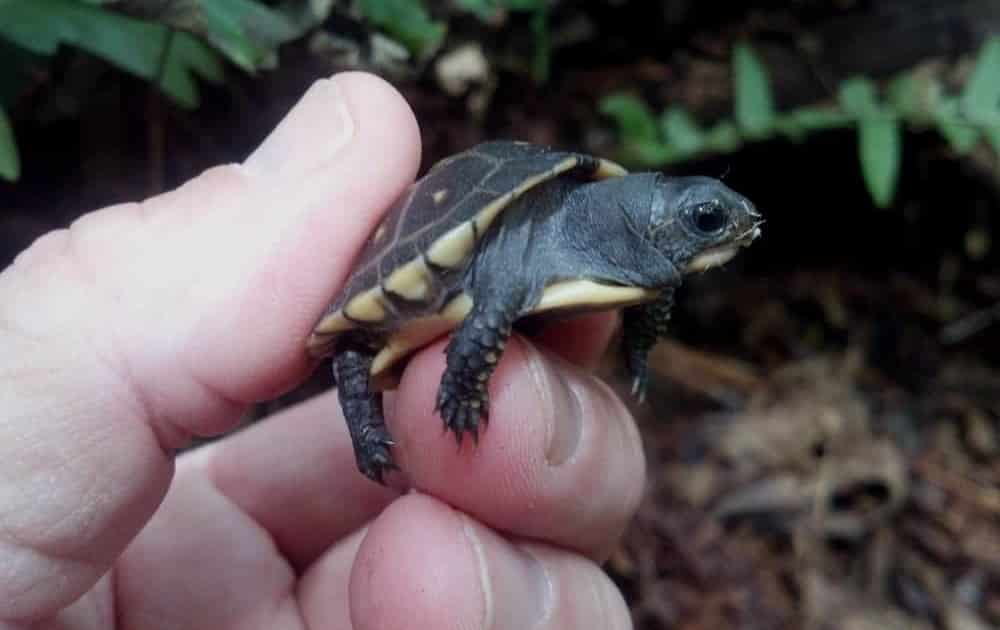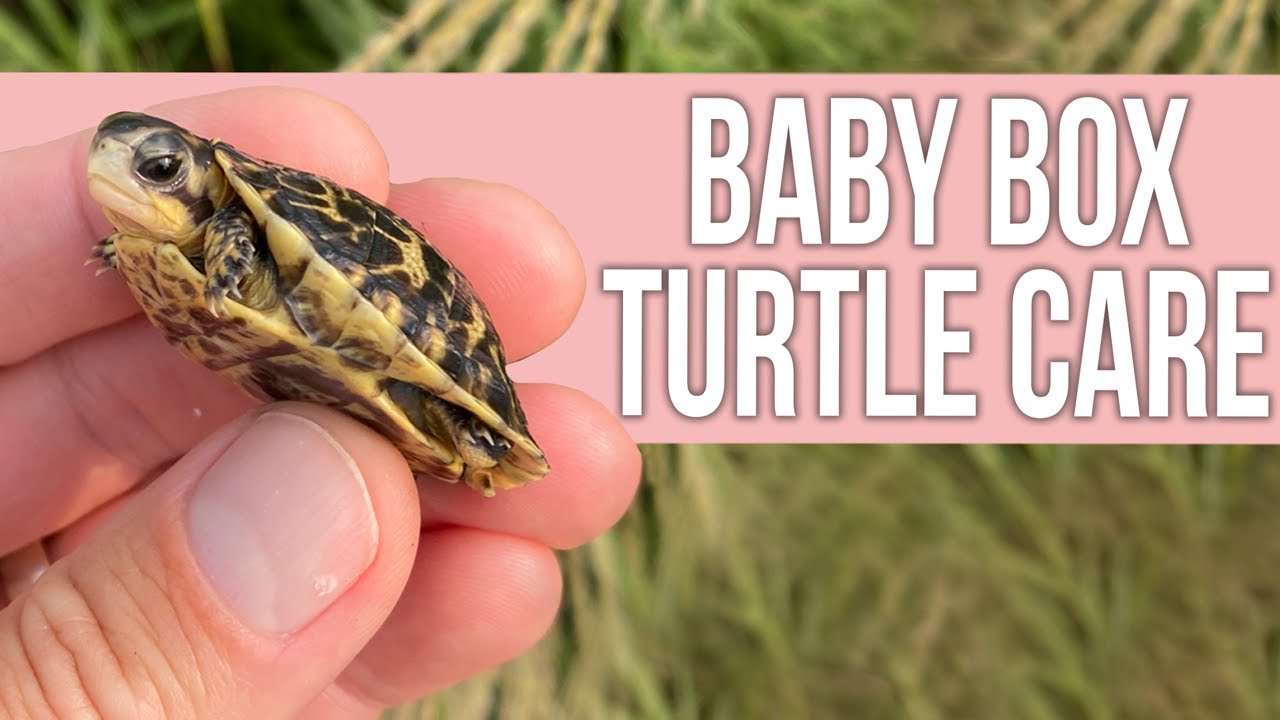To care for a baby box turtle, provide a suitable habitat with warmth, humidity, and hiding spots. Offer a varied diet of insects and leafy greens to promote growth and health.
Caring for a baby box turtle requires attention to detail and a nurturing approach. These tiny reptiles need specific conditions to thrive and grow into healthy adults. By creating a suitable environment and providing proper nutrition, you can ensure the well-being of your baby box turtle.
In this guide, we will explore the essential aspects of caring for a baby box turtle, including habitat setup, feeding requirements, and general tips for promoting their overall health and happiness. Let’s dive in and learn how to care for these fascinating creatures!

Credit: www.tortoisetown.com
Setting Up The Habitat
Setting up the habitat for a baby box turtle is crucial to ensure its health and well-being. The right enclosure and environment are essential for the turtle to thrive. By creating a suitable habitat, you can provide a safe and comfortable space for your baby box turtle to grow and develop.
Choosing The Right Enclosure
When selecting an enclosure for your baby box turtle, opt for a glass or plastic tank that provides ample space for the turtle to move around. Ensure that the enclosure has a secure lid to prevent the turtle from escaping and to maintain the proper humidity levels within the habitat.
Creating A Suitable Environment
Line the bottom of the enclosure with a substrate such as coconut coir or cypress mulch to mimic the turtle’s natural habitat. Incorporate hiding spots and shelter areas using rocks, driftwood, or artificial plants to give the turtle a sense of security. Add a shallow water dish for drinking and soaking, making sure the turtle can easily access it.
Feeding And Nutrition
Caring for a baby box turtle requires proper feeding and nutrition. Offer a varied diet of insects, vegetables, and fruits, and ensure that they have access to clean water at all times. Supplement their diet with calcium to promote healthy shell growth.
Caring for a baby box turtle is not an easy task, and one of the most important aspects of caring for them is feeding and nutrition. A proper diet is essential for their growth and development. In this section, we will discuss the diet of baby box turtles, recommended food items, and feeding frequency.Understanding Baby Box Turtle Diet
It is essential to understand the diet of baby box turtles before feeding them. Baby box turtles are omnivores, which means they eat both animal and plant-based food. They require a well-balanced diet consisting of protein, vegetables, and fruits.Recommended Food Items
Here are some recommended food items for baby box turtles:| Food Item | Type |
|---|---|
| Earthworms | Animal-based |
| Crickets | Animal-based |
| Mealworms | Animal-based |
| Dark, leafy greens | Plant-based |
| Squash | Plant-based |
| Berries | Plant-based |
Feeding Frequency
Baby box turtles require frequent feeding. They should be fed every day or every other day. It is recommended to feed them in the morning so they have time to digest their food before the temperature drops at night. In conclusion, a well-balanced diet is essential for the growth and development of baby box turtles. By understanding their diet, feeding them recommended food items, and feeding them frequently, you can ensure they stay healthy and happy.Hygiene And Cleanliness
When it comes to caring for a baby box turtle, ensuring hygiene and cleanliness is crucial for their health and well-being. Proper maintenance of their environment and regular cleaning routines are essential for their overall hygiene.
Maintaining Clean Water
Clean water is essential for the health of your baby box turtle. Ensure that the water in their enclosure is changed daily to prevent the buildup of bacteria and contaminants. Use a shallow dish for water and ensure that it is cleaned and refilled regularly to provide your turtle with a healthy drinking source.
Cleaning The Enclosure Regularly
Regular cleaning of the enclosure is vital to maintain a hygienic environment for your baby box turtle. Remove any uneaten food, feces, and soiled bedding on a daily basis to prevent the spread of bacteria and odors. Thoroughly clean the entire enclosure on a weekly basis using a mild soap and warm water. Ensure that all substrates and decorations are thoroughly cleaned and dried before returning them to the enclosure.
Handling And Interaction
Handling and interacting with a baby box turtle requires gentle care and patience to ensure their well-being. Proper ways to handle them and building trust and bonding are essential for the turtle’s health and comfort.
Proper Ways To Handle A Baby Box Turtle
When handling a baby box turtle, it’s crucial to approach them gently and avoid sudden movements. Lift the turtle from underneath, supporting its shell with both hands, and be mindful of its delicate limbs. Always wash your hands before and after handling to prevent the transmission of any harmful bacteria.
Building Trust And Bonding
Building trust with your baby box turtle is essential for its well-being. Spend time near its enclosure, allowing the turtle to become familiar with your presence. Offer food by hand to create a positive association and slowly introduce gentle petting to establish trust and bonding.
Health Care
Health care is crucial for the well-being of your baby box turtle. By being proactive and observant, you can ensure that your pet stays healthy and happy. Regular health check-ups and being aware of signs of illness are essential aspects of caring for a baby box turtle.
Signs Of Illness To Watch For
It’s important to be vigilant for any signs of illness in your baby box turtle. Some common signs to watch for include:
- Loss of appetite
- Lethargy or lack of activity
- Abnormal swelling or lumps
- Runny nose or eyes
- Changes in shell appearance
- Abnormal feces
Regular Health Check-ups
Regular health check-ups with a reptile veterinarian are vital for maintaining your baby box turtle’s well-being. During these check-ups, the veterinarian can assess the turtle’s overall health, provide necessary vaccinations, and address any concerns you may have.

Credit: www.youtube.com
Growth And Development
As baby box turtles grow and develop, it is important for their caregivers to understand the various growth stages and how to encourage healthy development. Proper care during the growth and development phase is crucial in ensuring the well-being of these fascinating reptiles.
Understanding Growth Stages
Box turtles go through several growth stages as they mature from hatchlings to adults. Understanding these stages can help caregivers provide appropriate care and support their development.
Encouraging Healthy Development
There are several ways to promote the healthy development of baby box turtles. From providing a suitable habitat to offering a balanced diet, these measures can contribute to the overall well-being of these young reptiles.

Credit: animals.mom.com
Conclusion
Taking care of a baby box turtle requires patience, attention, and proper knowledge. By providing a suitable habitat, balanced diet, and regular health check-ups, you can ensure the well-being of your pet. Remember, consistent care and love are essential for the growth and happiness of your baby box turtle.






Leave a Reply